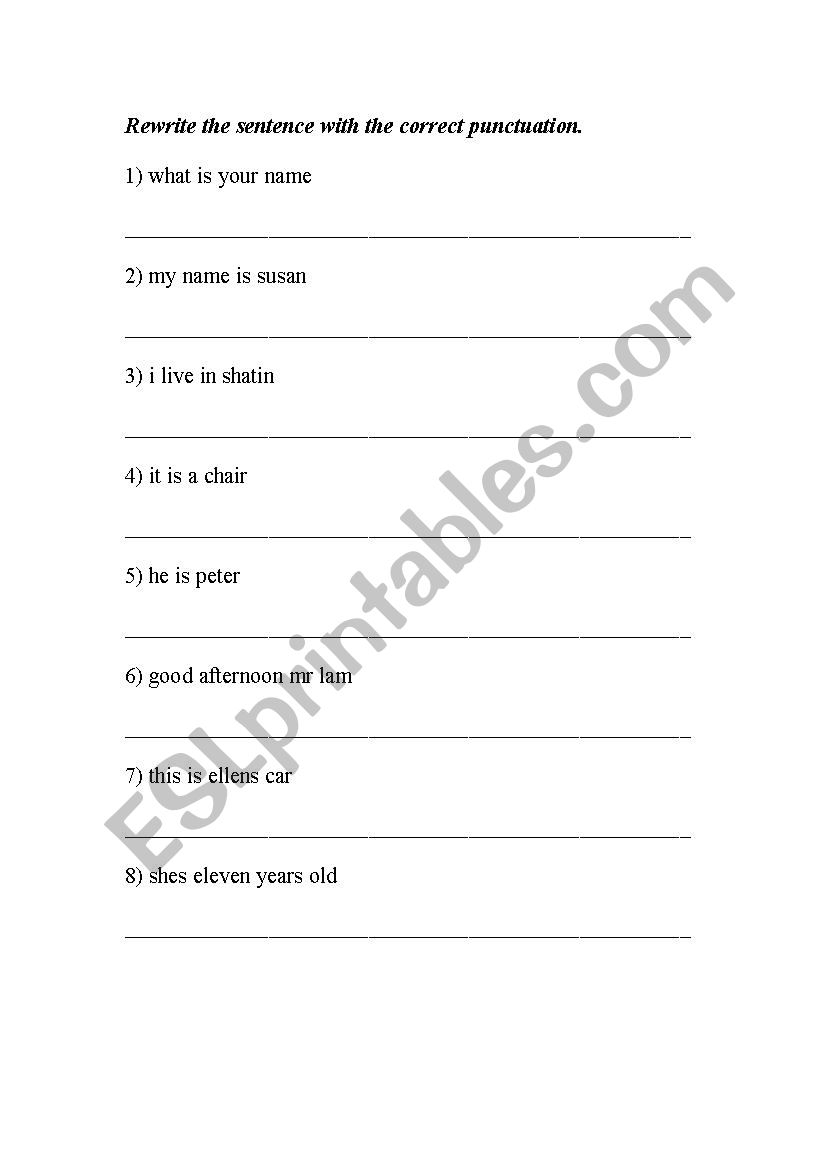Proper punctuation is essential for clear and effective communication in writing. Incorrect punctuation can lead to confusion and misunderstanding. Fortunately, there are several strategies you can use to correct punctuation errors in your writing. By paying attention to the rules of punctuation and implementing these strategies, you can improve the overall quality of your written work.
One of the most important aspects of correct punctuation is knowing when to use punctuation marks such as commas, periods, and quotation marks. Understanding the rules for each type of punctuation mark is crucial for ensuring that your writing is clear and easy to read. If you are unsure about the proper usage of a particular punctuation mark, consult a grammar guide or style manual for clarification.
How to Correct Punctuation
One effective strategy for correcting punctuation errors is to proofread your writing carefully. Take the time to review your work line by line, paying close attention to the placement of punctuation marks. Look for common errors such as missing commas, misplaced apostrophes, and incorrect use of quotation marks. By carefully proofreading your work, you can identify and correct punctuation errors before submitting your writing.
Another helpful strategy for correcting punctuation errors is to use punctuation checking tools available online. These tools can help you identify and correct common punctuation errors quickly and easily. Simply copy and paste your writing into the tool, and it will highlight any punctuation errors that need to be corrected. This can be a useful way to catch punctuation mistakes that you may have missed during the proofreading process.
In addition to proofreading and using punctuation checking tools, it can be helpful to seek feedback from others on your writing. Asking a peer, teacher, or mentor to review your work can provide valuable insight into any punctuation errors you may have overlooked. Having a fresh set of eyes on your writing can help you identify and correct punctuation errors more effectively.
Overall, correcting punctuation errors in your writing requires attention to detail and a willingness to learn and improve. By following the strategies outlined above, you can enhance the clarity and professionalism of your writing by ensuring that your punctuation is correct and consistent. Remember that proper punctuation is essential for effective communication, so take the time to review and correct any errors in your writing before sharing it with others.
In conclusion, mastering the art of correct punctuation takes practice and patience. By utilizing the strategies mentioned above, you can improve your punctuation skills and enhance the quality of your writing. Remember that clear and effective communication starts with proper punctuation, so make it a priority to correct any errors in your writing. With time and effort, you can become more confident in your punctuation abilities and produce writing that is polished and professional.
